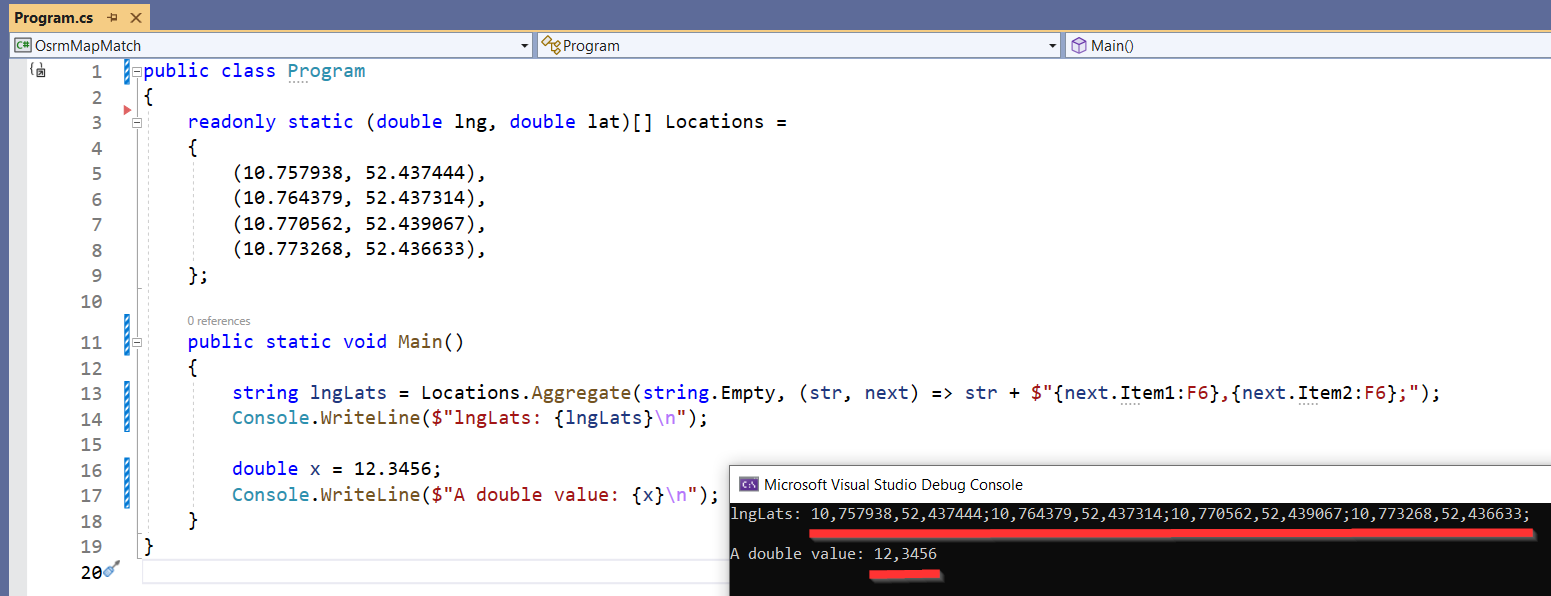I have prepared a C# fiddle for my question, however it does not really show the actual problem and correctly uses dots as decimal separator in the interpolated double values (UPDATED with Tim’s trick, thank you):
using System;
using System.Linq;
public class Program
{
readonly static (double lng, double lat)[] Locations =
{
(10.757938, 52.437444),
(10.764379, 52.437314),
(10.770562, 52.439067),
(10.773268, 52.436633),
};
public static void Main()
{
string lngLats = Locations.Aggregate(string.Empty, (str, next) => str + $"{next.Item1:F6},{next.Item2:F6};");
Console.WriteLine($"lngLats: {lngLats}n");
double x = 12.3456;
Console.WriteLine($"A double value: {x}n");
}
}
However, when I run the same code on my Windows 10 Enterprise 22H2 computer, (set to English language, but German region) using Visual Studio 2022, then the decimal separator is a comma:
My question is: how to ensure that the decimal separator character is always a dot in the interpolated strings?





3
Answers
String interpolation uses the current culture. So you need a workaround with
double.ToString:Your modified fiddle: https://dotnetfiddle.net/BTaONq
So string interpolation doesn’t support a different culture. You could use
string.Format:You can use the invariant culture like this
With a
using static System.FormattableString;you can simplify the calls and of course you can integrate this with the console output:See also:
I was thinking about this compromise, maybe?